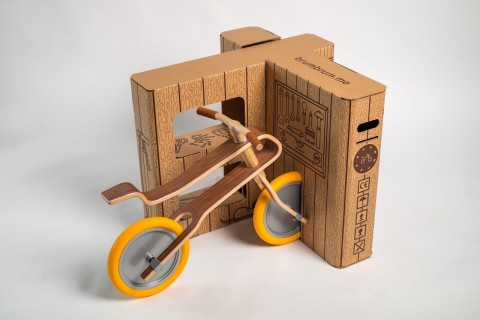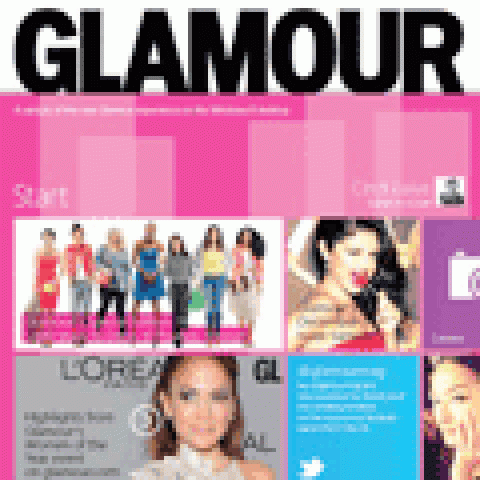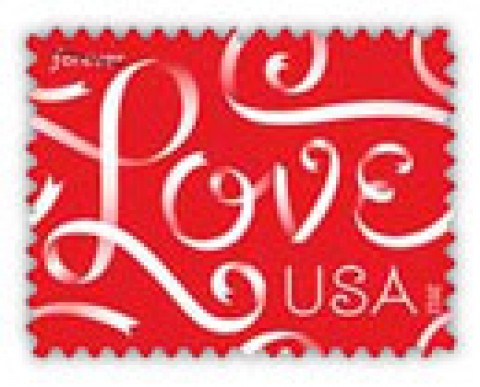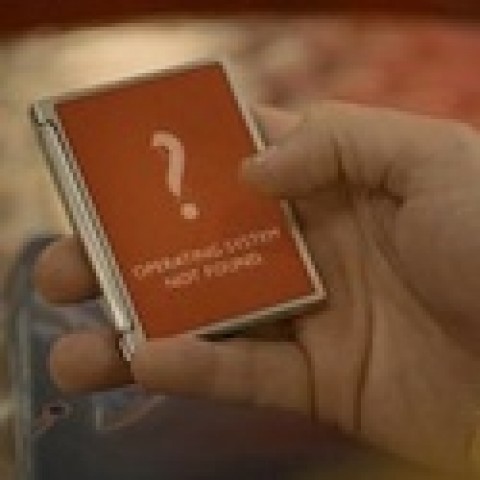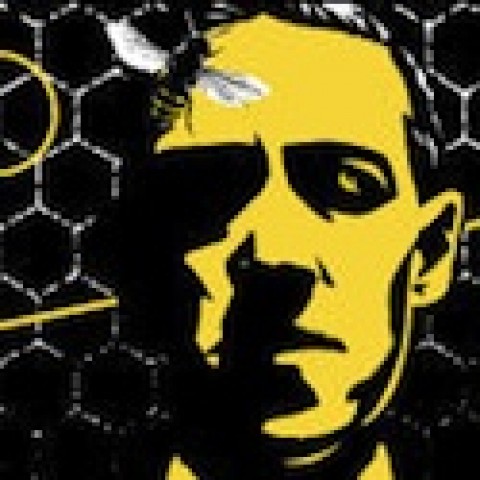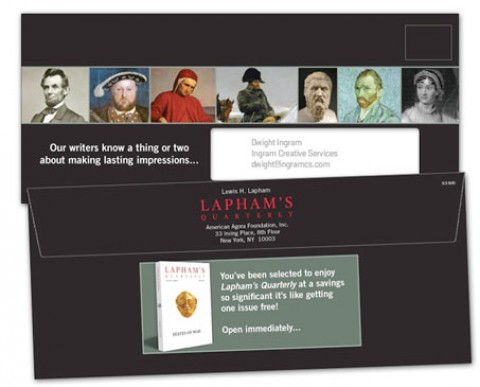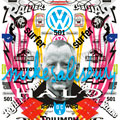
“One thing I always disagreed with both of [my advisers] on is giving anybody revisions to a job at no cost to the client. I mean if the client’s not satisfied the first time, how are they going to be satisfied the second time, even if it’s for free?”
Mike Salisbury is one of the leading talents in American design and the man behind the imprint on a multitude of products – Levi’s 501 jeans (a brand created by Salisbury), Michael Jackson’s white glove, Rolling Stone and Playboy magazines, O’Neil and Gotcha surfwear. All of that along with some of the world’s most recognized corporate branding and product design for companies such as Hasbro –the biggest toy company in the world – Volkswagen, Honda, as well as “Halo” and “Halo II” – the world’s most popular video game series.
Salisbury created marketing campaigns for more than 300 movies including “Aliens,” “Rocky,” “Romancing the Stone,” the new “Planet of the Apes” and “Moulin Rouge.” (And in the film “The People vs. Larry Flynt,” Flynt defends the First Amendment based on a concept Mike Salisbury created for Hustler.)
George Lucas collects Salisbury’s work and recommended him to Francis Ford Coppola, who used Salisbury for the prototype for the photographer’s role in “Apocalypse Now.” The exploding boxing gloves that interpreted “Rocky IV” to the world are a Salisbury image so hot it became the symbol for the film, eliminating the need for a film title. This image also became Salisbury’s most copied.
Getting Started
“I remember trying to get a job but had no résumé. I really didn’t want a résumé because it just seemed so cold. Instead, I always created something visual to get a job. I was hired out of school by Playboy magazine in Chicago. I wanted to come back to California, so I created a cartoon strip résumé with [the letter] ‘M’ as the main character, and I got hired from that.
By creating ads on my own that I thought fit their style, I got my first job as an advertising agency art director.
You need to show potential clients or employers or schools what you can actually do. And you need to do it well, even if you’re only creating samples for portfolio pieces. And you must personalize this communication. How? Use your name in your business. And adding your photo or likeness to résumés or websites or your card in a creative and/or tasteful way puts a person with the work.

Everything you communicate with should be a reflection of your taste and talent. You can communicate with humor if that reflects you and your work. You can communicate with an idea or style.
All of my stationery – envelopes, letterheads and labels for packages and discs – are designed with samples of my work and have a small logo sticker that attaches to any work presented. I have my logo on e-mails, I have printed T-shirts with my logo and mailed them to clients and potential clients. A lot of my materials have been a bit humorous to take the hard-sell edge off.
Getting the Next Gig
Building my business has always been promoting, promoting and more promoting. Even now, I’m trying out new ways to promote. I even had a press agent at times.
I have sent out weekly postcards announcing new work or awards, advertised in the entertainment trade magazines, created mailers that featured one piece of known work in each category I work in — editorial design, motion picture marketing, apparel advertising, video game branding, corporate identity, packaging, and the amount possibly earned for clients with each example.
I speak at conferences and events about my work. And I wrote a book about my work: “Art Director Confesses.”
Getting Out There
Take every opportunity to learn new things and meet new people and network. As a creative director at Wells Rich Green, and Foote Cone Belding, I had access to big-deal clients with big-deal budgets, and I learned and created what I couldn’t have working alone. And I met and worked with people who later became my clients. For my business.
Attend seminars and take classes. I have attended a lot of seminars and I’ve spoken at them: AIGA, Idea. But I’ve also attended different kinds of seminars, not just those relating to design or advertising.
I attended a Guerilla Marketing seminar, which was very beneficial. It reminded me to do things I should do that we forget to do like taking notes and asking questions. And their book is a good one, too. It told me how to promote with obvious, easy-to-understand things I could do. Things which don’t cost a lot of money, like letters. I send out a lot of letters. And people read them and pass them on. And with e-mail today it can be easier, but at times there is no substitute for the real thing in writing.

Outside of work, my love of surfing and motorcycling and my interests in art and photography have created new opportunities and made new clients. I went surfing in Fiji with guys who were all in finance: stock brokers and bond brokers. They asked what I did and I told them, and I ended up contributing to the bottom line of a lot of their companies.
From my experiences riding and surfing, I have been asked by people I meet from the surfing and motorcycle industries to create advertising campaigns, and design and marketing materials, and I have been asked by major magazines to write about surfing and motorcycling and design.
Show Off
Promoting is presentation and this business of advertising and design is presentation, presentation, presentation. I learned presentation studying architecture at the University of Southern California. This is one of the most valuable assets I have.
Something I developed creating for the motion picture business is conceiving and managing the creation of a lot of concepts to a lot of different directions for presentations.
I have built entertaining and theatrical presentations, once renting an empty new industrial space to hang a two-page layout of a very large format brochure promoting a new movie, like an art gallery show. My presentations have been created in theatrical forms but explain the concepts very well.
Because of my presentations, I’ve been asked to create presentations for agencies for their clients or potential clients as well as for Levi Strauss and Volkswagen, and to revise those presentations.
Business Advisers
Two more heads, of course, are better than my little one.
David Goodman has been an adviser of mine for over 10 years. He builds strategies for solving client assignments and advises me on tactics for dealing with clients. He is here in the LA area. Emily Cohen is another adviser from the East Coast. She writes my proposals and contracts. She, at times, has one point of view and Dave has another. So together we construct proposals and I take advice.
One thing I always disagreed with both of them on is giving anybody revisions to a job at no cost to the client. I mean if the client’s not satisfied the first time, how are they going to be satisfied the second time, even if it’s for free?
Mike’s Perspective on Specializing
I never specialized. Magazine design, advertising, graphic design, illustration, photography, film, architecture, writing – I have done it all. That creates some problems in marketing myself. So, what I do is simply position myself as a sales tool. Today, branding is the best term to describe what I do.
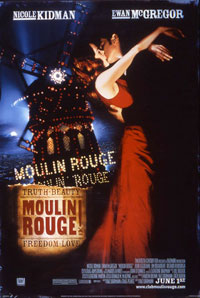
I started taking pictures when I was a little kid, about 6 or 7. And I earned my camera selling greeting cards door to door. I could always draw and I would draw for people’s attention, especially girls’ attention. I still draw for the preliminary stages of working. With my sketches I have something to communicate to the people who work with me. And it doesn’t take a computer.
When I was about 9, I lived next door to an art director on the Kellogg’s account and he asked me to do some lettering that looked like a kid’s writing, and that introduced me to advertising and design.
Take Every Opportunity to Learn
In junior high, I began a business painting flames, surrealistic murals and pinstriping on cars.
I lived near George Barris Kustom Kars and I would ride my tricked-out bicycle over there and just watch Von Dutch pinstripe and spray paint flames on the custom cars and hot rods. I practiced and practiced on everything and everywhere. My entire bedroom was pinstriped. I then went on the road painting at car shows and drag races.
Pinstriping took concentration to make designs symmetrical with just a brush. Also in junior high I learned to set type. Learning both skills took concentration and both were invaluable in my work.
Words are the coin of the realm – make them look good like money.
Take Every Opportunity
I like to believe I always picked what I wanted to do. I wanted to design a magazine so I promoted myself to the editor, John Severson, for the job as the first art director of Surfer magazine. Being in that arena brought me design work for clients like Gordon and Smith and Birdwell Beach Britches. Later, that beach industry experience got my own firm hired to create memorable ad campaigns for Gotcha.
That was after I wanted to be in advertising. After Surfer, I picked the agency that I thought was doing the best work and prepared those sample ads to show what I could do and I was hired.
I say I like to believe I always picked what I wanted to do and just did it, but I was fortunate that when and where I started, there wasn’t a lot of competition for creative jobs.
And I could see opportunities that other people couldn’t see. For example, when I went to be the art director of West, everyone said it was horrible. It was a supplement of the LA Times and they wouldn’t be interested. To me it was like a blank canvas. They had a circulation of 2 million and they really didn’t have a format or a look.
I gave it a format and a look. The format organized the editorial material so it could be read, and I gave West a look with the content. I wanted to make it about Southern California and the culture we live in, and LA is all about the visual.
And I used the magazine to promote what I did. I mailed copies all over the world. People could not get enough of California. I lived it and could tell the story and got more work to do that.
Another opportunity no one saw was the position of creative director for United Artists Records. I took the job and was nominated for a Grammy with one of my album covers. That led to me being hired as the art director of Rolling Stone – a magazine that never had a strong visual presence. That gave me the opportunity to create one for it.
Don’t Stop
My aunt was a high school English teacher who always gave me books. Learning to write has been a passion of mine so I started writing for magazines like Men’s Journal and Forbes because of my Rolling Stone connection.
From Rolling Stone I went to work creating ad campaigns for movies. A hard, supposedly dead-end job but I did get to create the “Jurassic Park” and “Raiders of the Lost Ark” logos.
When the big time New York ad agency Wells Rich Greene opened their Los Angeles office they were looking for someone with entertainment industry experience. That was me. But the guy that told them to hire me worked at Wells and was a fan of West. I’ve always been in a place where I could see an opportunity, especially one handed to me.
And either on my own or working for a big company, I would use the opportunity to learn.
At West I had pushed myself learning more photography and I got assignments from magazines like Vogue and Esquire and I took pictures of recording stars like George Harrison. At Wells, I stayed long nights looking at reels learning all I could about commercials.
Mike Koelker was the executive creative director on the Levi’s account at Foote Cone Belding in San Francisco. He hired me to be director of creative services. I was asked why? Koelker does everything creatively for Levi’s and he does it great. At FCB, I introduced the 501 brand. That work was on billboards all over the country, on TV, featured in The Wall Street Journal.
There were a lot of people who couldn’t understand why I would want to go to work for the LA Times for West magazine, or people would ask why would I want to go back to work for an agency like Wells.
It was all opportunities to create, learn new things and meet new people – network. A lot of times the pay was really good, but there were other times when the pay wasn’t the issue. You know and I know salary jobs can’t always be the best paying jobs in the world.
So I look for what I’m going to get out of it, what I’m going to learn. And I get to work with that client’s money and make samples for myself.
You know, going back to the Wells and Foote Cone agencies, they had big-deal clients with big-deal budgets, and I got to create things that I couldn’t have created working alone for myself. Sometimes people don’t see those kinds of opportunities.
Advice for Someone New to the Business
My daughter, Victoria, graduated from college in fashion and she wanted to put together a résumé, but she hadn’t done anything professionally. I suggested that she make a presentation piece because she’s a fabulous designer, and she’s really good at the construction of fabulous high-end clothes, and her designs have all been photographed. She did the presentation work. She got hired and just completed the design of an entire line of women’s wear, which sold out when shown at a trade show.
The thing to do is always show people what you can do. The words aren’t going to do much in a résumé for a visual person, unless you’re demonstrating market experience. And if you don’t have anything to show people, do what I did to get my first agency art director job at the Lansdale Agency. I saw what he did, the most clever stuff in LA at the time, I created ads that might have come out of his place, presented them to him, and got a job.”
……………………………….
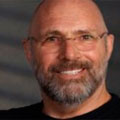
Will Sherwood has been grooving on graphic design, web design and marketing communications for more than 40 years – he ran a hand-feed letterpress at 16, designing tickets, invitations and cards in his family’s print shop. Today, Sherwood is CEO/Chief Creative Officer of The Sherwood Group.

